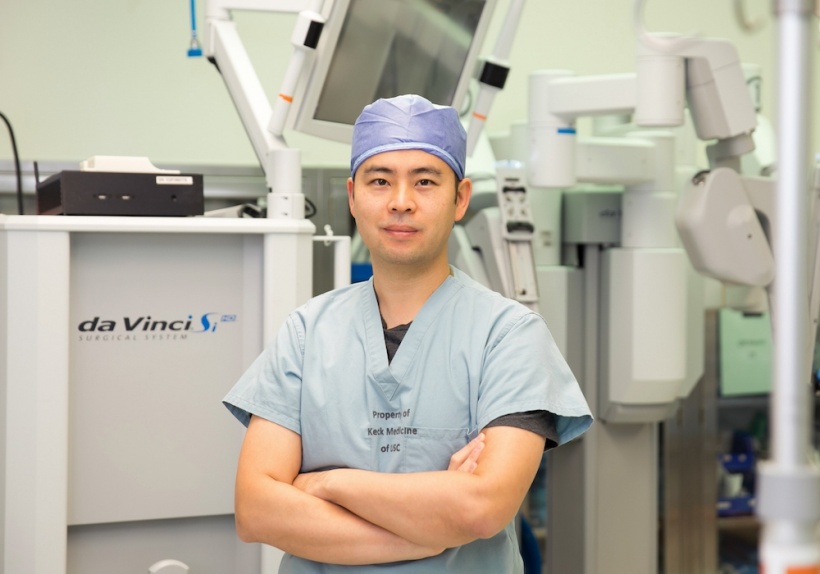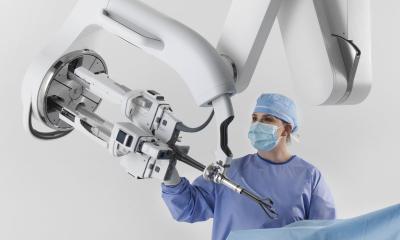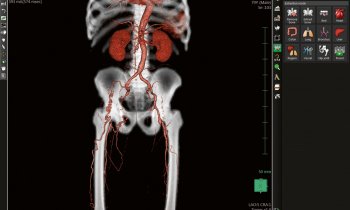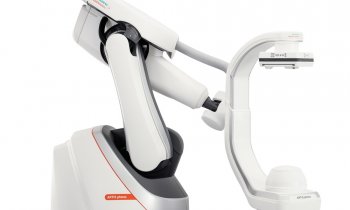
News • New recorder
This ‘black box’ has an eye on surgeons’ robotic surgery skills
A new study from Keck Medicine of USC finds that data from a novel recorder can be used to objectively measure surgeons’ proficiency in robotic-assisted prostate cancer surgery
You may know that your surgeon is using the latest minimally invasive technology for your surgery, but how do you know if they’ve mastered it? To help answer that question, researchers at Keck Medicine of USC looked to a custom recording tool similar in concept to a flight recorder on an airplane. When attached to a robotic surgery system during radical prostatectomy procedures, the most common treatment for prostate cancer, the “black box” recorder captured data that could be used to discern the difference between novice and expert surgeons. The results of the study will appear in the January 2018 edition of The Journal of Urology.
“Robotic surgery has been widely adopted by urologic surgeons, but methods of assessing proficiency vary widely between institutions,” says lead author Andrew Hung, MD, assistant professor of clinical urology at the Keck School of Medicine of USC. “In order to be credentialed by institutions to use the robotic system, surgeons must be evaluated by their peers for a handful of procedures, but the evaluations are not ongoing, and sometimes evaluators don’t agree on what constitutes proficiency.”
We now have an opportunity to put surgeon proficiency under the microscope and see what role it plays in patient outcomes
Andrew Hung
Creating a sustainable, objective method for evaluating surgeon proficiency and standardizing credentialing is a way to help ensure patient safety, Hung explains. The recorder used in the study, called the dVLogger, captures both anonymized video and movement data. Developed by Intuitive Surgical, the research tool can attach to the company’s da Vinci Surgical System, a robotic surgical platform approved by the U.S. Food and Drug Administration for general laparoscopic surgery. “The dVLogger records the surgeon’s movements, capturing where the instruments are and how the surgeon is moving the instruments,” Hung says.
To test the recorder’s ability to measure proficiency, four basic prostate surgery steps were analyzed. Data from 100 procedures performed by both novice and expert surgeons were recorded. Results showed that novice and expert surgeons could be identified by measuring time to complete operative steps; distance of instrument and camera travel; and frequency of camera movements. Hung says that future studies will explore how the recorded performance data compares to clinical outcomes. “We now have an opportunity to put surgeon proficiency under the microscope and see what role it plays in patient outcomes,” he says.
Source: Keck Medicine of USC
11.12.2017










